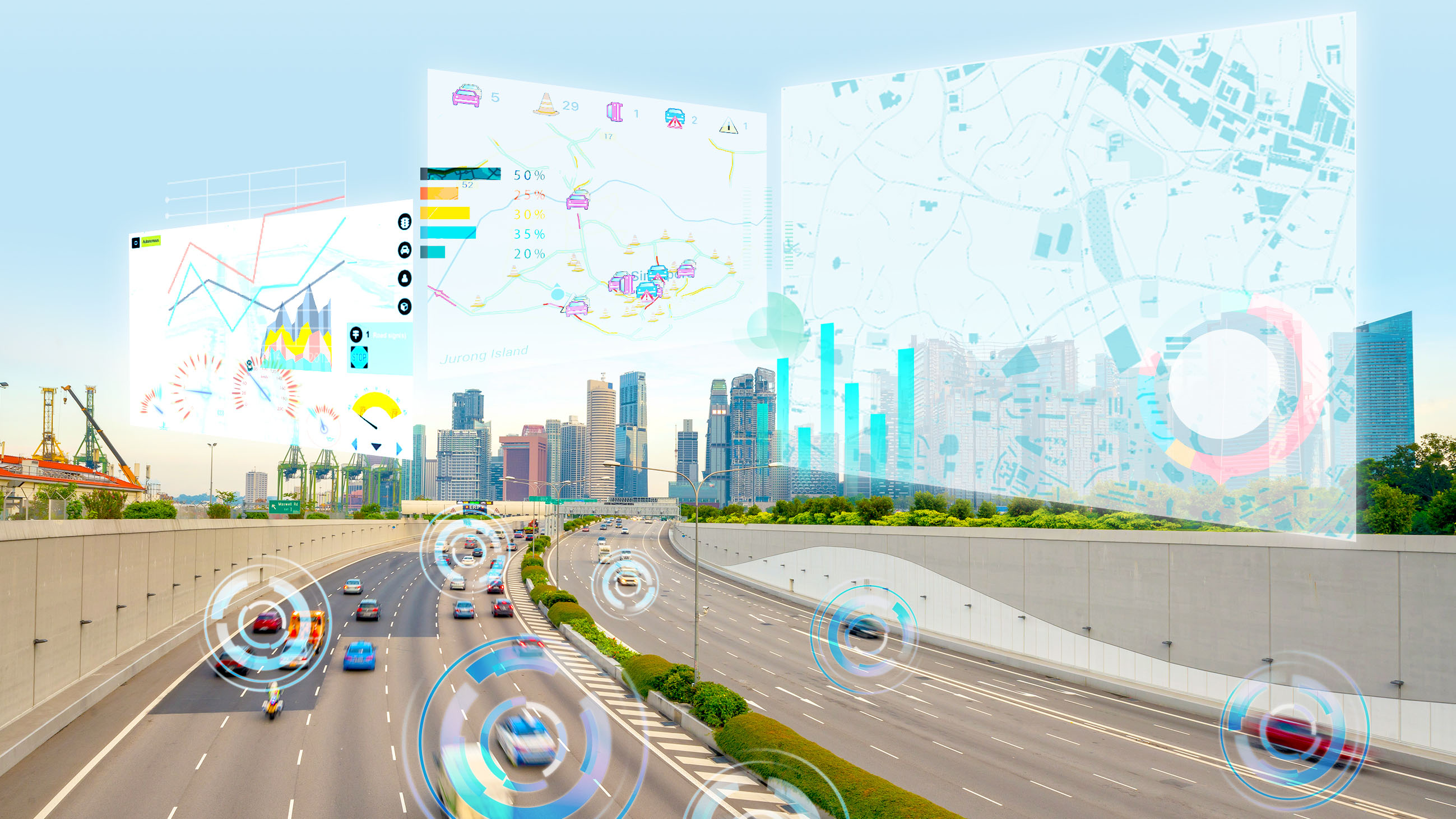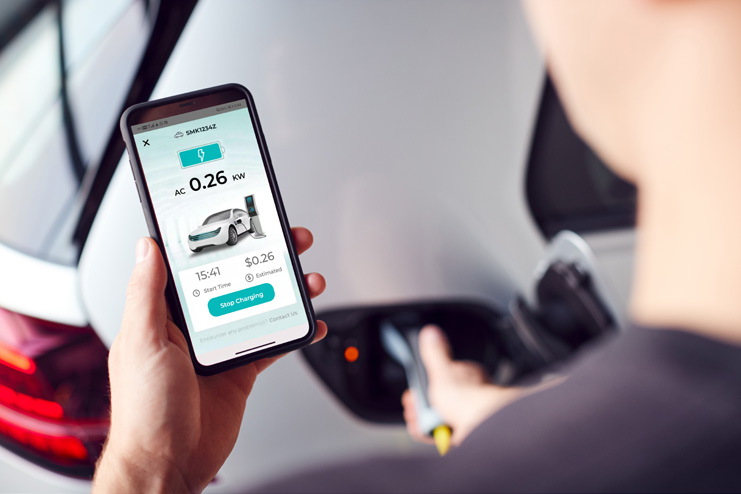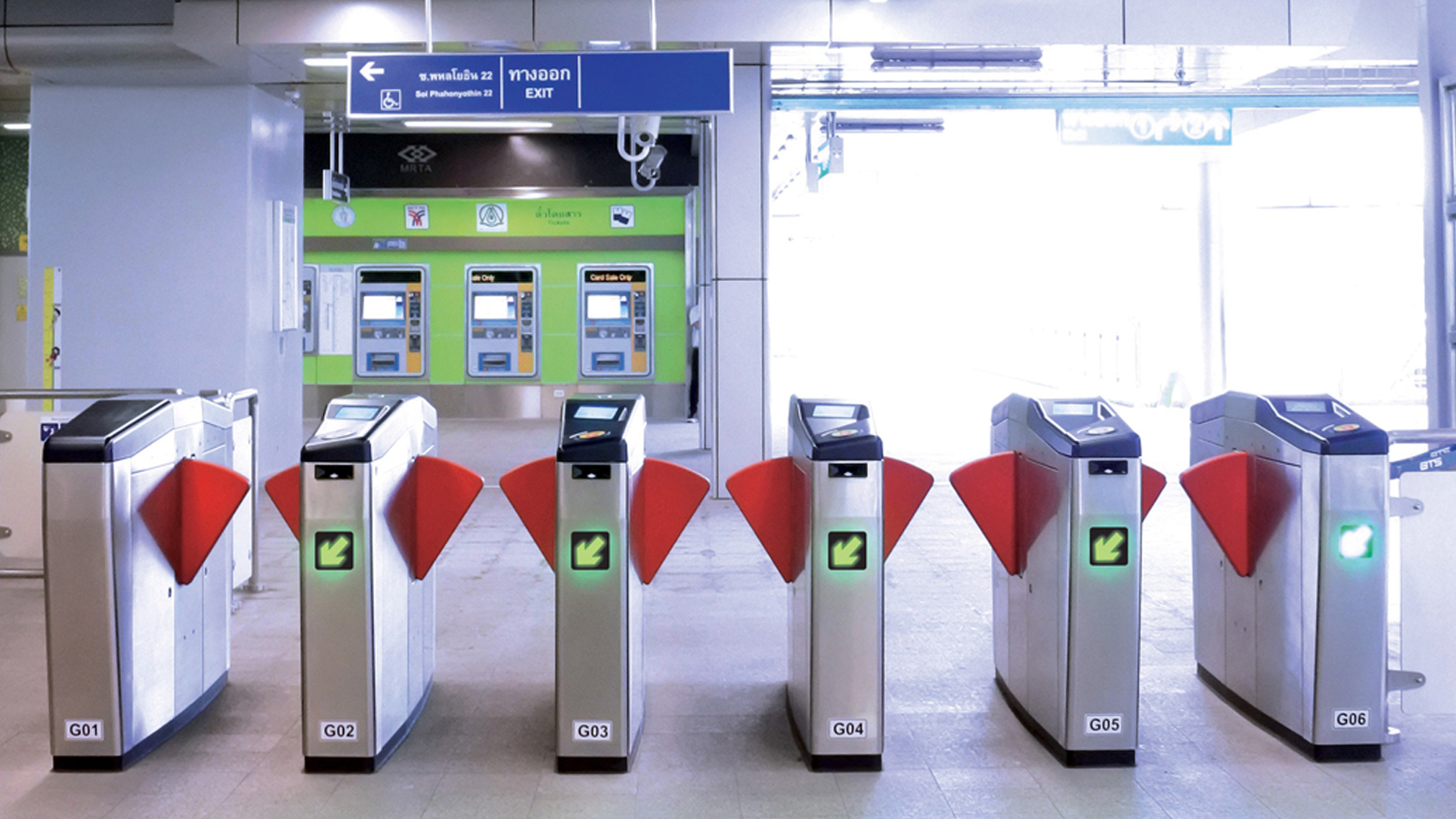
By 2050, almost 70% of the world’s population will be living in cities.[1] This demographic shift signals a new set of challenges and opportunities to develop smarter and more efficient cities.
As cities become more congested and complex, innovative transportation systems are essential. Using traditional AI, Generative AI (GenAI), and data analytics, we aim to enhance and transform urban transportation infrastructure and management.

One key urban challenge that our suite of traffic solutions tackles is traffic congestion. In the U.S., our tolling business TransCore has deployed its state-of-the art tolling systems and intelligent transportation solutions in various states, making significant improvements to roadway safety, operational efficiency and travel experiences. These systems integrate AI-powered automatic license plate recognition (ALPR) technology with Radio Frequency Identification (RFID) and other advanced technologies to facilitate system modernisation and upgrades. Our tolling systems were most recently deployed on the 236-mile Kansas Turnpike and will be rolled out on four bridges spanning the Delaware River between Pennsylvania and New Jersey to alleviate traffic congestion.

Another AI-driven solution is the AGIL® Urban Traffic Management System, which leverages video and data analytics for automatic incident detection and traffic prediction. In the event of an incident, our system will quickly suggest optimised routes and traffic management strategies to reduce congestion.
To further enhance this system, our Smart Mobility team is working towards deploying a Multi-Agent System (MAS) Enterprise platform, which would allow us to employ multiple AI and GenAI agents to perform different tasks.
Nixon Ng, Head of Technology Development at Urban Solutions, shared that operators have to manually monitor thousands of traffic cameras. However, it is not efficient nor is it possible for the human eye to catch every incident.
“The MAS Enterprise platform will serve as an AI assistant to perform various tasks at the same time, reducing the possibility of delayed responses to incidents. For example, it can automatically flag out the key camera that has captured an incident." |
Using GenAI, we have enhanced our solutions with a real-time knowledge management system. For example, we built a chatbot for our cloud-based GoParkin™ Smart Car Park System, an integrated parking and EV charging management solution that provides round-the-clock customer services to motorists, uses the system to assist their call centre operators to swiftly and accurately answer motorists’ queries. Operators have praised the system for its intuitive and easy-to-use interface.

“The chatbot helps new carpark operators learn the ropes faster, and they like how simple and user-friendly it is. More importantly, this improves customer service and experience," Nixon said.
Previously, operators were dependent on their memory and manual searches to respond to enquiries. With GenAI, the system is now capable of autonomously extracting information from its operation and maintenance manual, producing immediate and precise answers for motorists. This reduces the number of people tending to enquiries, enabling operators to focus on value-added tasks.
GenAI is also revitalising customer service within the transportation sector. The AGIL Mobility Payment Solutions platform, part of our suite of Smart Mobility rail solutions, exemplifies this potential with GenAI. Beyond supporting contactless payment through technologies such as smart tags and biometrics, the automated barrier-free fare collection system also features an Interactive Traveller Terminal that includes a live chat agent, acting as a remote help desk for multiple terminals.
Remote help desks can potentially leverage GenAI to analyse passenger data and develop unique commuter profiles. By understanding these profiles, GenAI-enabled systems can deliver personalised information, such as travel recommendations and special offers, enabling passengers to receive content that is more relevant and tailored for their needs.
The impacts on commuter experience are significant, as passengers welcome an era of seamless, convenient and personalised customer journeys.

From traffic management and car park systems to customer service, GenAI is set to revolutionise urban mobility by enhancing traffic management, improving incident response and user interactions.
“GenAI enhances efficiency and boosts accuracy through real-time data-driven insights, leading to better outcomes for everyone," Nixon concluded. |
Embracing GenAI and other advanced technologies, we are well placed to shape a future of mobility that is dynamic, responsive and human-centric, contributing to less congested and sustainable cities that improve overall quality of life.
[1] 68% of the world population projected to live in urban areas by 2050, says UN. United Nations Department of Economic and Social Affairs. (n.d.). View article.
Copyright © 2026 ST Engineering
By subscribing to the mailing list, you confirm that you have read and agree with the Terms of Use and Personal Data Policy.